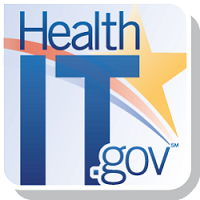
The Department of Health and Human Services released the draft Trusted Exchange Framework, a significant step towards achieving interoperability, as required by the 21st Century Cures Act of 2016.
The draft Trusted Exchange Framework, issued by HHS’ Office of the National Coordinator for Health Information Technology (ONC) (@ONC_HealthIT), advances Congress’ intent that building and maintaining trust is an important core element in ensuring that health information is available where and when it is needed to manage patient health and care.
“The draft Trusted Exchange Framework we issued today reflects the successes and challenges already existing in the exchange of health information and is designed to help guide the nation on its path to interoperability for all,” said Don Rucker, M.D., national coordinator for health information technology. “The principles and direction we released today, combined with the support of providers, existing health information networks, health IT developers, and federal agencies, are designed to help improve patient care, care coordination, and the overall health of the nation.”
The Trusted Exchange Framework proposes policies, procedures, and technical standards necessary to advance the single on-ramp to interoperability requested by Congress. It will be facilitated through ONC in collaboration with a single Recognized Coordinating Entity (RCE) to be selected through a competitive process. The RCE will use the Trust Exchange Framework policies, procedures, technical standards, principles, and goals to develop a single Common Agreement that Qualified Health Information Networks (Qualified HINs) and their participants will voluntarily agree to adopt. Following a 45-day public comment period and refinements to the draft document, a final draft of the combined Trusted Exchange Framework and Common Agreement will be released. The Trusted Exchange Framework and Common Agreement (TEFCA) will be published in the Federal Register in 2018.
ONC will continue to engage with federal partners, such as the Department of Veterans Affairs (VA) and other stakeholders to establish interoperability that allows health information to be used effectively in care and treatment decisions.
“The Department of Veterans Affairs supports ONC’s efforts to create a common “on-ramp” to health information networks that supports widespread interoperability, said Dr. Carolyn Clancy, VA executive in charge. “We look forward to working with all stakeholders to ensure that our veterans’ health information flows and is available when and where it is needed to support seamless care.”
The proposed Trusted Exchange Framework supports ONC’s goals of achieving nationwide interoperability:
- Patient Access – Patients must be able to access their health information electronically without any special effort;
- Population-level Data Exchange – Providers and payer organizations accountable for managing benefits can receive population level health information allowing them to analyze population health trends, outcomes, and costs; identify at-risk populations; and track progress on quality improvement initiatives; and
- Open and Accessible APIs – The health information technology (health IT) community should have open and accessible application programming interfaces (APIs) to encourage entrepreneurial, user-focused innovation to make health information more accessible and to improve electronic health record (EHR) usability.
The draft Trusted Exchange Framework would not prevent existing or new organizations from creating point-to-point or individual agreements between organizations that have a particular business need to exchange information – while preventing potential information blocking – that may be different from those outlined in the proposal.
The ONC also released a User’s Guide to Understanding the Trusted Exchange Framework and the US Core Data for Interoperability (USCDI) Glide Path to identify a roadmap for broadening the data that can be exchanged via the TEFCA.
“We know that many stakeholders, including healthcare providers, health systems, developers, and existing health information networks have extensive experience in trust agreements and common exchange networks and strongly encourage stakeholders to share that insight with us,” said Rucker.
The period to comment on the draft Trusted Exchange Framework closes on February 18, 2018. Comments can be submitted at exchangeframework@hhs.gov.
